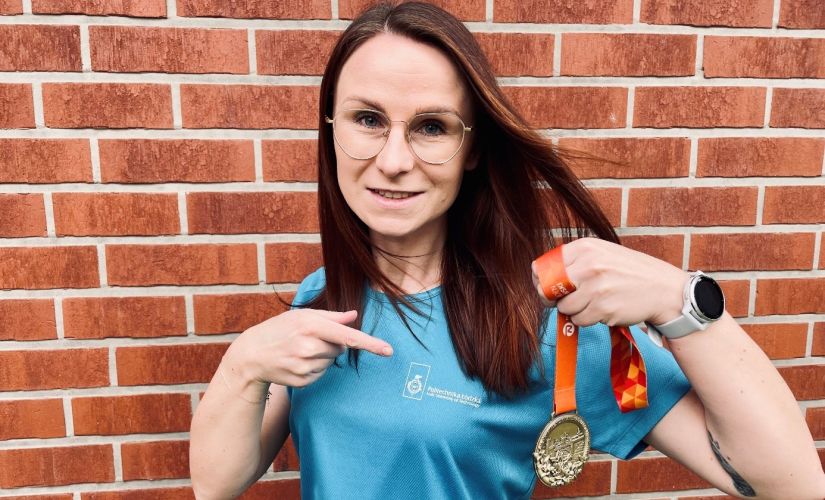The researcher from the Faculty of Chemistry, representing Lodz University of Technology, was one of 15,000 runners who lined up at the start line. The 21.097-kilometer route led through picturesque areas of the capital.
The Warsaw Half Marathon had additional competitions in a number of categories by one's profession, e.g., uniformed personnel, physicians, journalists, lawyers, traders. Those in academia were further categorized into students and faculty.
Dr inż. Magdalena Gajek completed the run in 01:47:42, which means she ran at an average speed of 5 min 04 s per kilometer. 'This result is much worse than my personal record for this distance, but it still not too shabby for an amateur', she stated.
In her academic work, the Assistant Professor conducts elemental analysis of different types of samples, especially environmental and food samples. Let's talk about sports, however.
How much does she run on a daily basis?
'I stick to a carefully prepared training schedule for specific distances (10 km, a half marathon, or a marathon). I usually run 30 - 40 km a week. The number of kilometers and the frequency of my runs depends on the preparation phase. It's important to note that I don't run every day, but rather an average of 3-4 times a week. When it comes to building fitness, recovery after the training is just as important as the training itself. On my days when I do not run, I try to do another form of physical activity, e.g., cycling and stretching.’
What exactly does this form of physical activity mean to Magdalena Gajek? 'For me, running is not just your typical physical activity to keep fit. It is where I overcome personal challenges, a way to face and beat my own limitations, set and achieve new goals. But most of all, it's my way to relax and a source of joy and satisfaction.’

